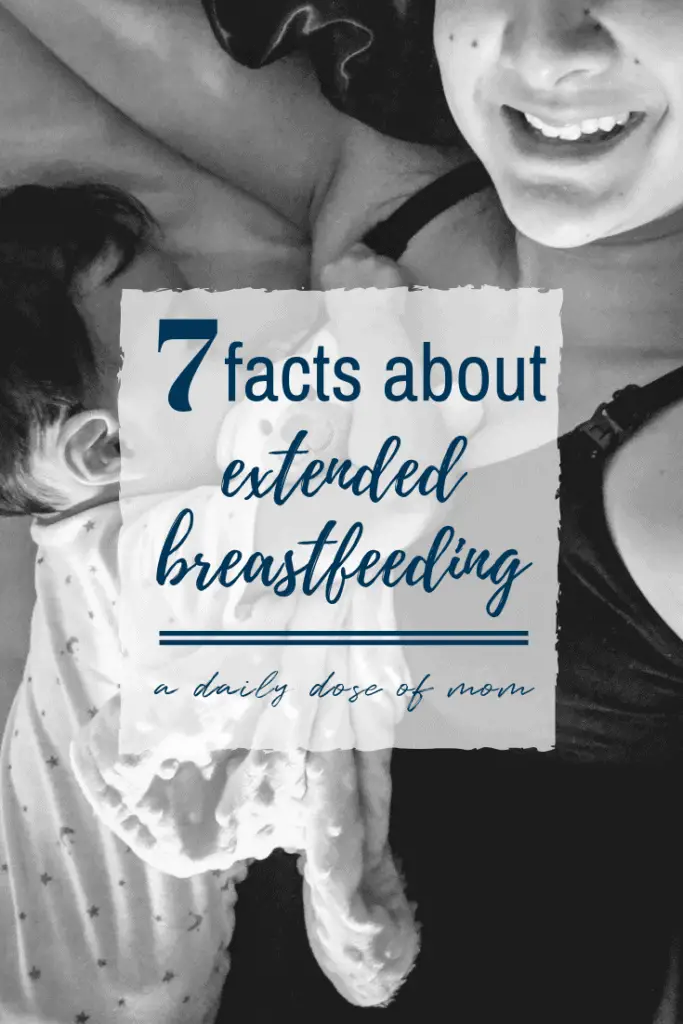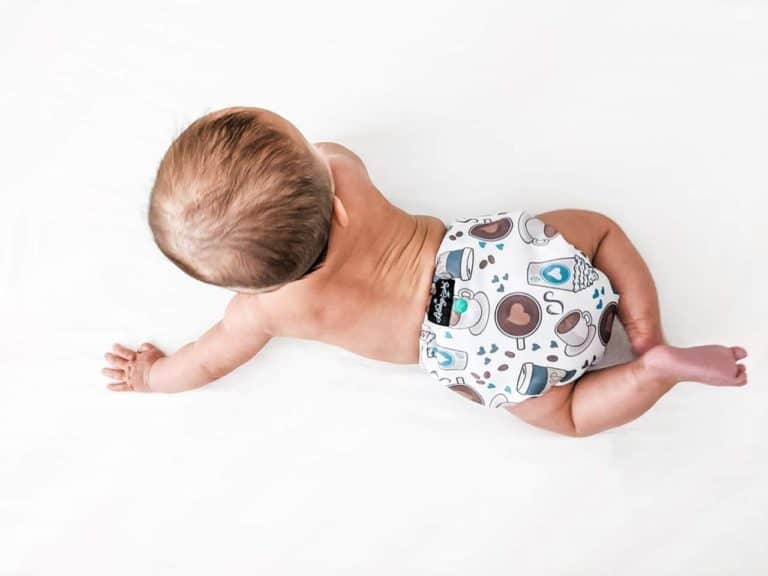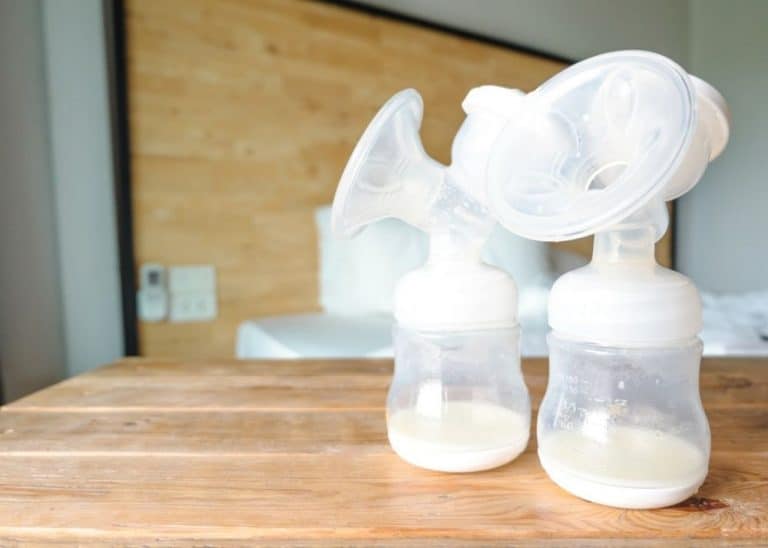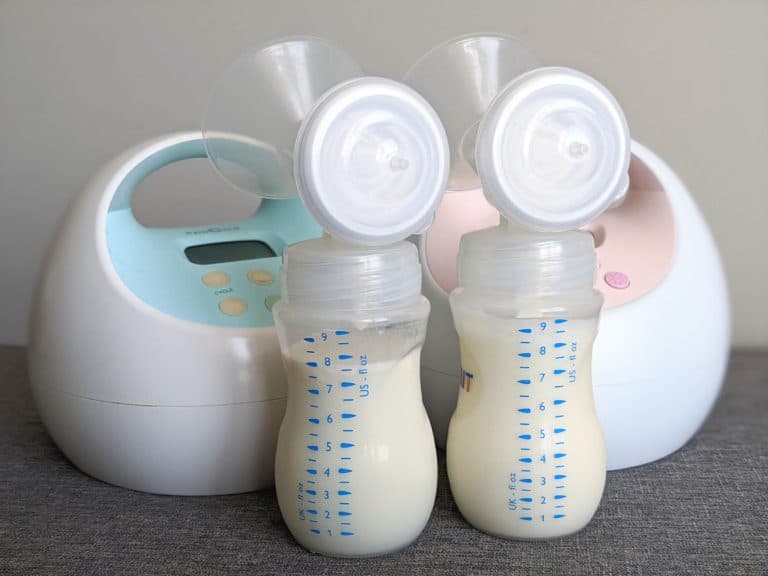7 Facts About Extended Breastfeeding
Woot! Remy and I have made it to 18 months of breastfeeding! However, in this day and age, I might actually get some weird looks from making such a celebratory statement. There is an unfortunate stigma that breastfeeding past the age of one is frowned upon and is actually thought of as inappropriate. Here are seven fascinating facts about breastfeeding past the age of one, which is also known as extended breastfeeding and why you should keep doing it!
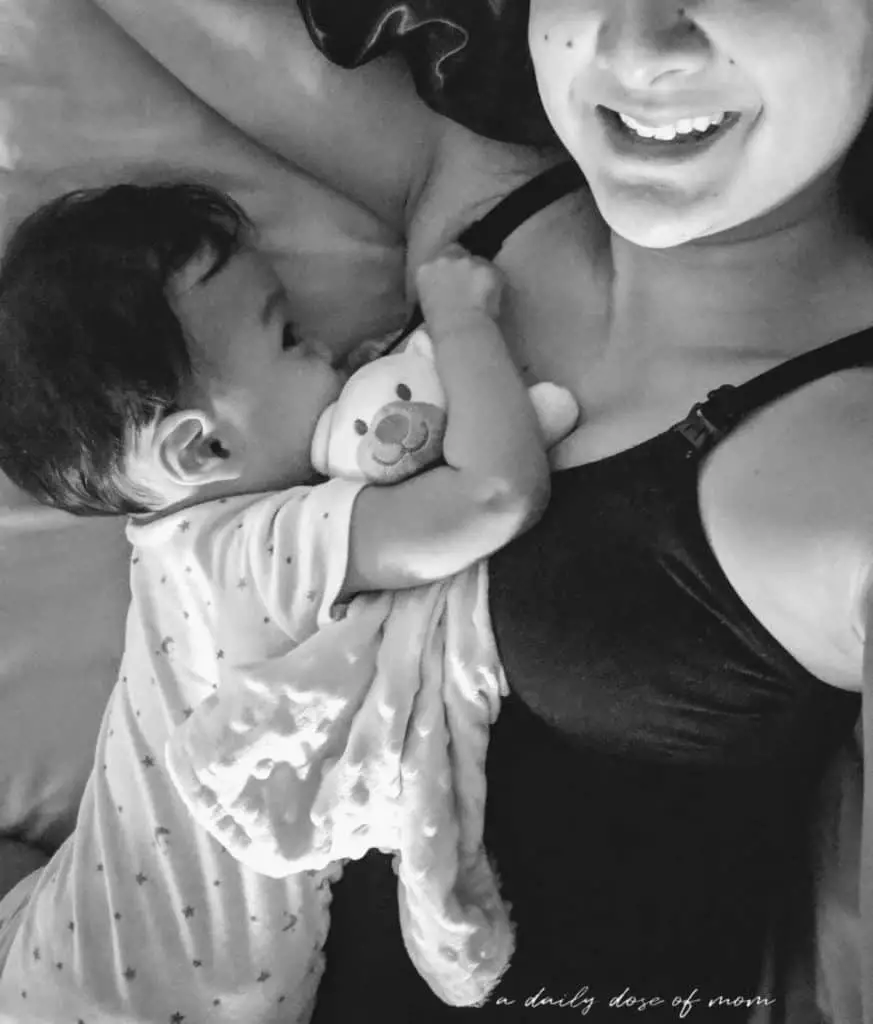
It is recommended by the experts
Do you know what the experts have to say about extended breastfeeding? The American Academy of Pediatrics recommends “exclusive breastfeeding for about the first six months of a baby’s life, followed by breastfeeding in combination with the introduction of complementary foods until at least 12 months of age, and continuation of breastfeeding for as long as mutually desired by mother and baby”.
Furthermore, the World Health Organization states that “breastfeeding is an unequaled way of providing ideal food for the healthy growth and development of infants; it is also an integral part of the reproductive process with important implications for the health of mothers. Review of evidence has shown that, on a population basis, exclusive breastfeeding for 6 months is the optimal way of feeding infants. Thereafter infants should receive complementary foods with continued breastfeeding up to 2 years of age or beyond.”
Still provides nutrition
It is no secret that breastmilk is very nutritious. It has protein, calcium, fat, vitamins, and nutrients that are vital to a growing baby. These don’t expire after one year! Breastmilk doesn’t magically lose its nutritional value after your baby’s first birthday! in fact, the composition of your breastmilk changes to meet the needs of your baby’s nutritional needs as they grow. How cool is that?
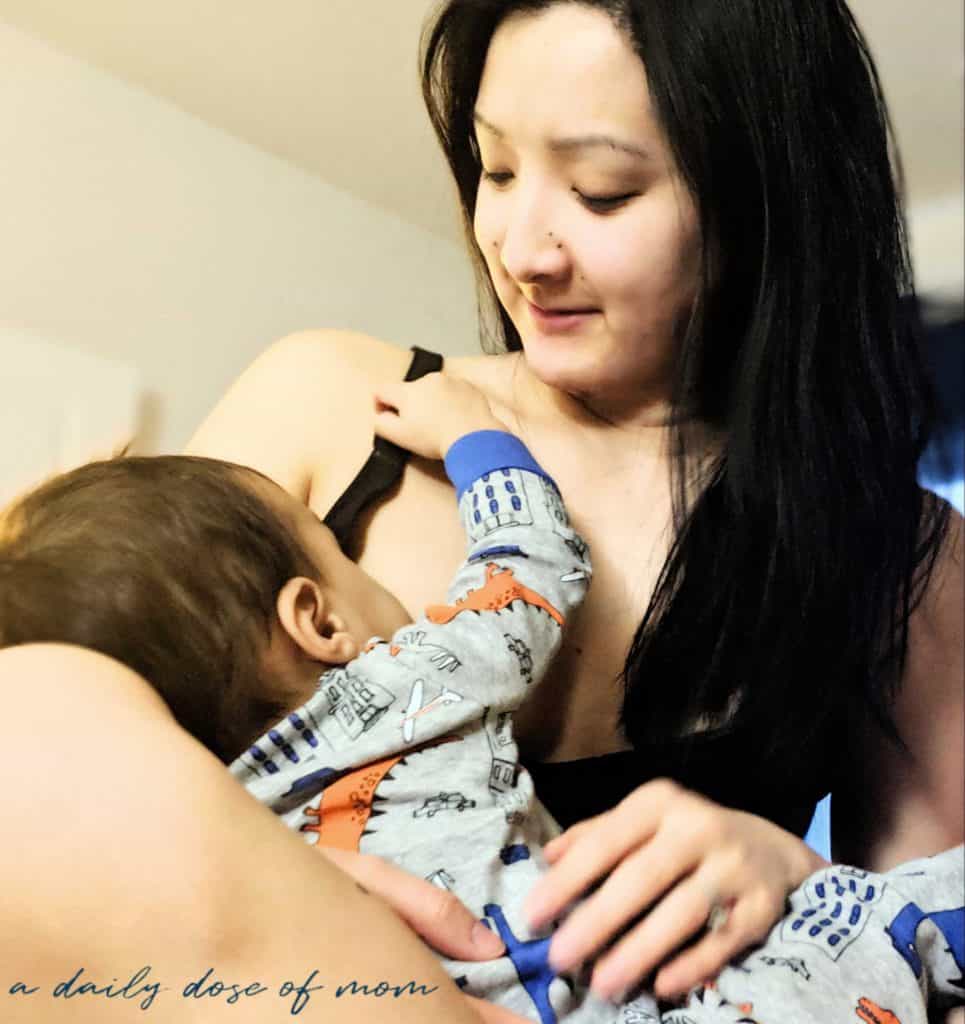
Gives immunity
We all know that breastmilk provides amazing immunity for your teeny tiny little baby. Those antibodies are powerful! But breastmilk still provides immunity as long as your little one breastfeeds and even more so after they turn one. This means a decrease in overall sickness, such as ear infections and upper respiratory infections.
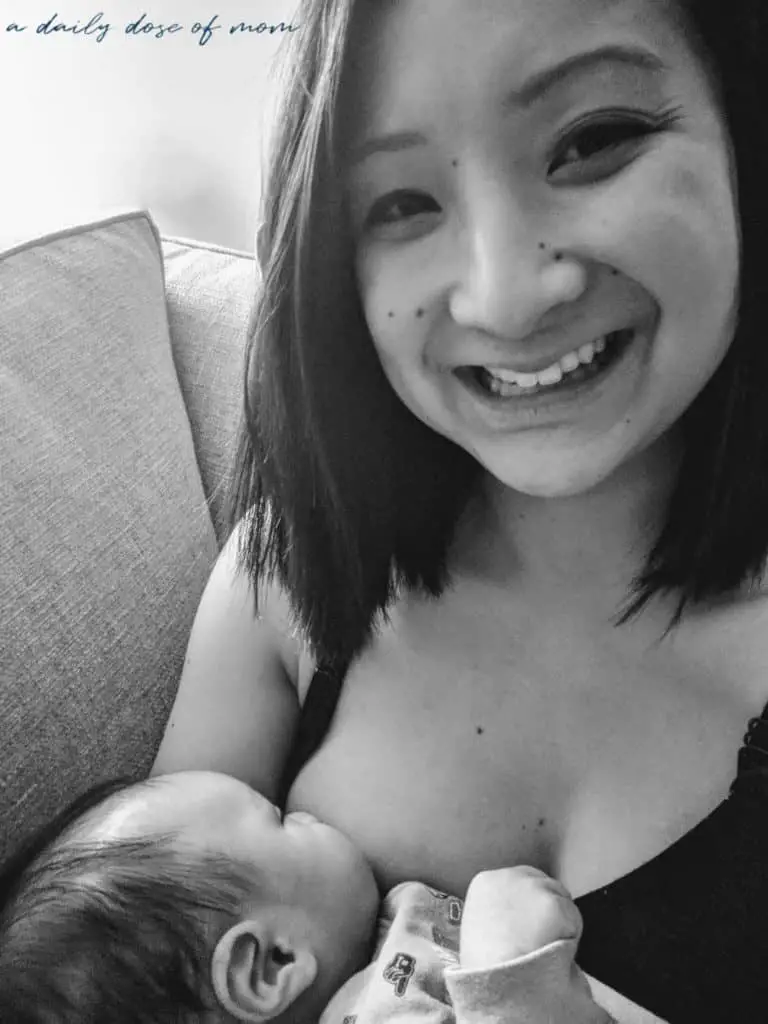
Boosts intellectual development
Because of the nutritional value of breastmilk, we know that it is great for brain development. In fact, studies have shown that the relationship between IQ scores and breastfeeding is greatest for the children who breastfed the longest. But breastfeeding contributes to intellectual growth in other ways! When your toddler is nursing from both breasts, they actually have a chance to look and reach in different directions, simply because they are in a different position.

Allows for mother and toddler bonding
Despite busy and crazy days, breastfeeding allows for downtime for you and your little one. You are given the opportunity to cuddle and stare into each other’s eyes. This is my favorite part of every day where we both take a breather and I can hold his tiny little hands in mine. This bonding time is not only great for your relationship as mother and child, but it is also encourages independence as described below.
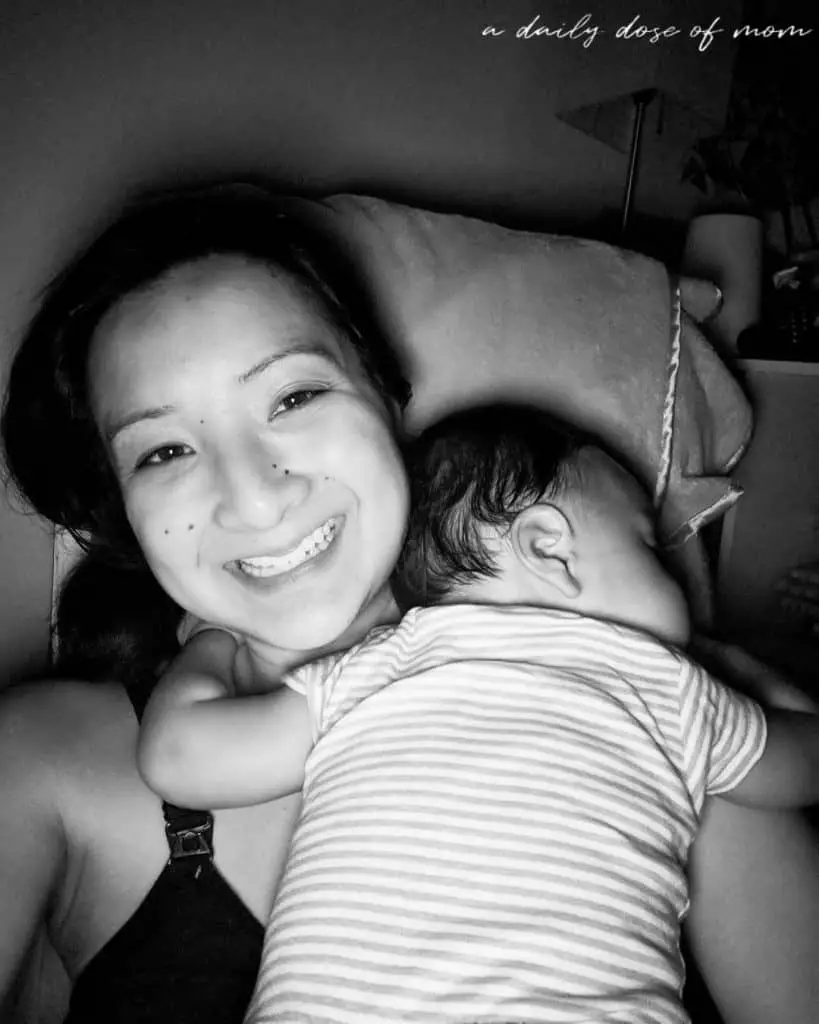
Encourages Independence
Surprising, right? Most of the negative comments I have received for extended breastfeeding is that Remy is becoming too dependent and needy of the boob. However, this is NOT the case because of the bonding that is taking place as described in #4! By breastfeeding, your toddler’s physical, psychosocial, and emotional needs are being met. They feel loved, safe, and secure when breastfeeding! Thus, when they are not breastfeeding, they are confident little humans and ready to take on the world.
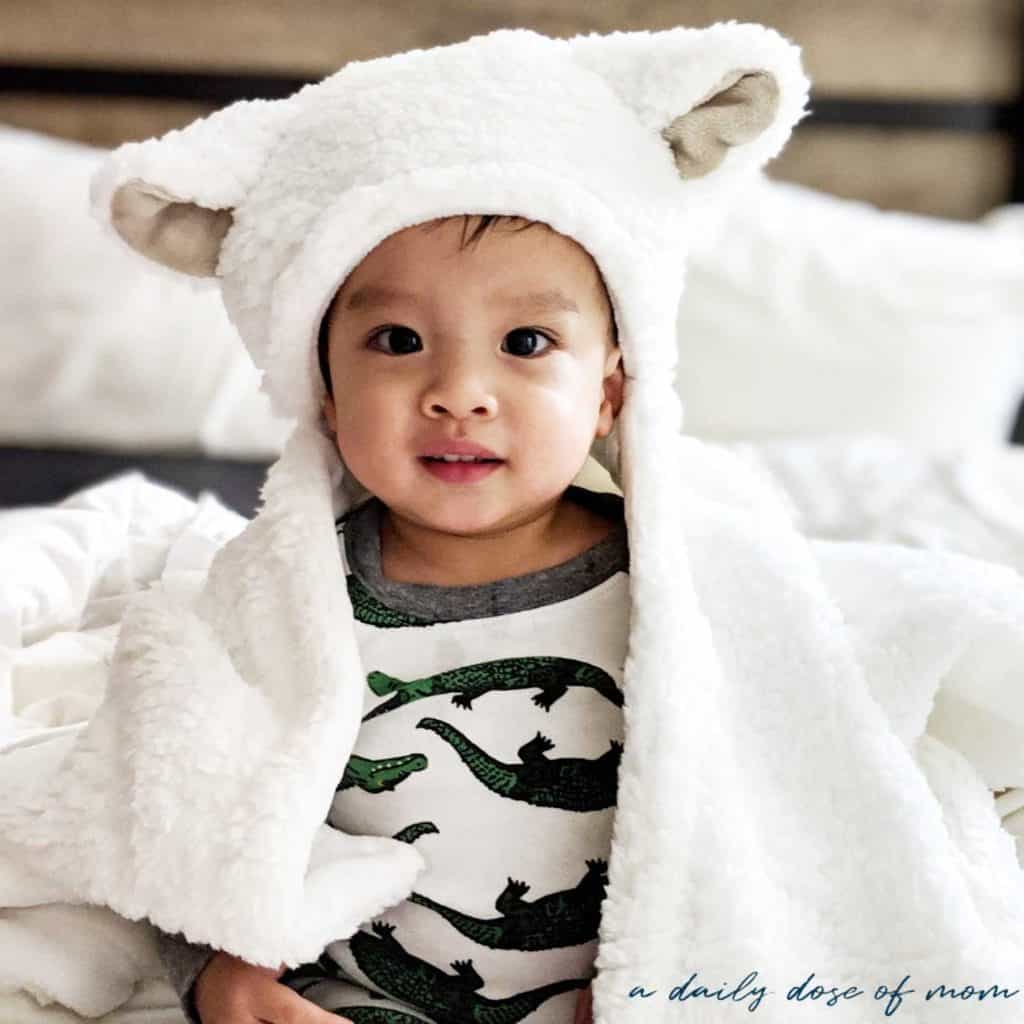
Good for mom as well
Did you know that extended breastfeeding is not only good for baby, but it’s good for you as well?! It has been shown that extended breastfeeding leads to a lower risk of breast cancer, ovarian cancer, rheumatoid arthritis, high blood pressure, heart disease and diabetes. Furthermore, breastfeeding for an extended period of time will help you lose that pregnancy weight and keep it off.
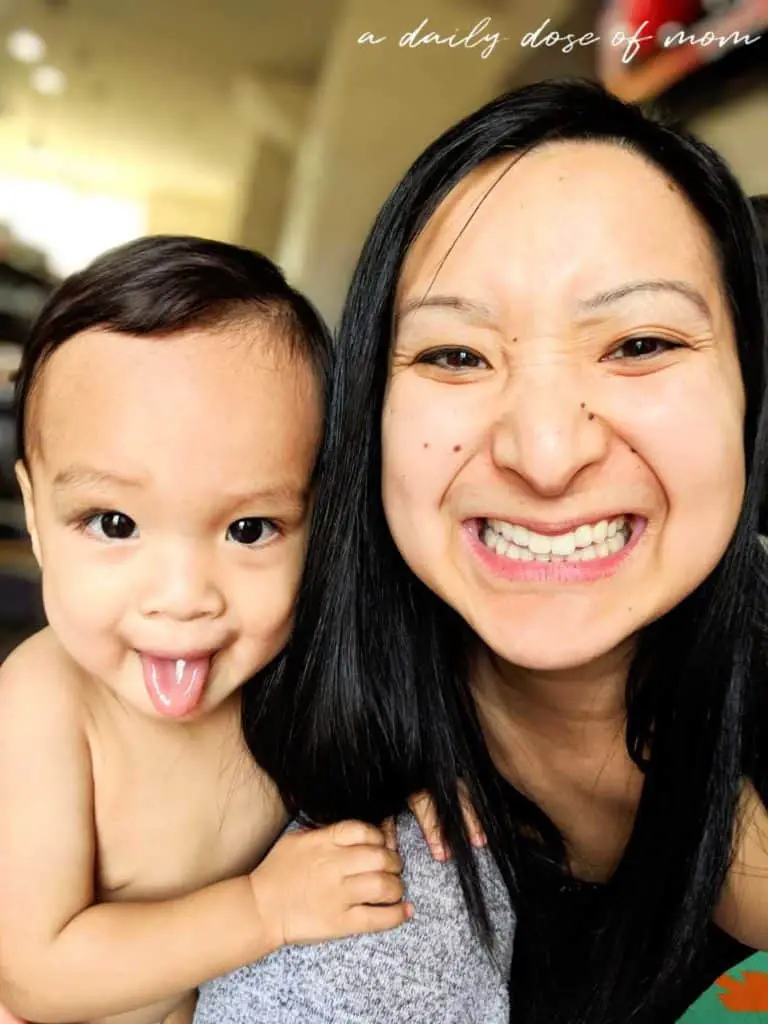
Currently, Remy just nurses in the morning and at night so I can nurse in the comfort of our home without having to nurse in public. I also don’t continuously offer the breast, but when he asks for it by signing “milk”, I don’t refuse either. There are some stretches of days when he won’t ask for it and I think we’re done, but then he’ll start nursing regularly again. I’m so thankful for this journey so far and glad that there is actual evidence behind extended breastfeeding. What did you think about all of these facts? Which one surprised you the most?
Check out these other articles about breastfeeding:

